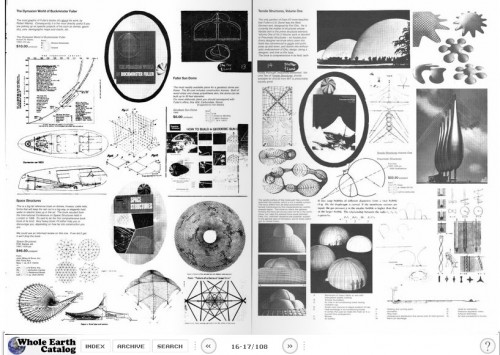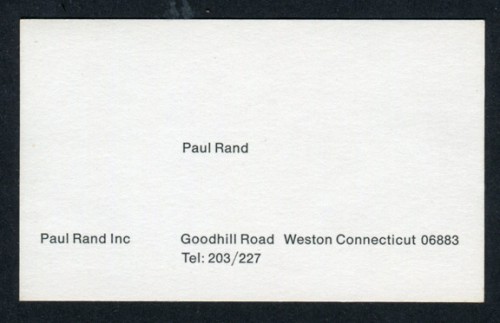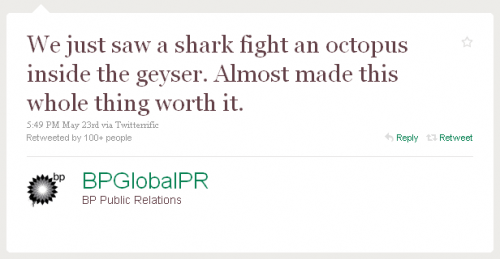Dang, that Grain Belt sweater in the upper right corner is HOT. via AJ Fosik
Author: Doug LeMoine
My old friend Michael Ramage has a hand in this installation in the Yerba Buena Center for Art's Sculpture Garden. He's designing and building a pair of domes, made from layers of bricks and mortar and styled on ancient techniques. The artist behind it is Jewlia Eisenberg & Charming Hostess, and the vision is that the domes will be an outdoor venue for music, contemplation, and mind-expanding activities throughout the summer. I visited on Tuesday, and I was struck by the ways that each dome's oculus (fancy word for the open, circular window at the top of the dome) framed the surrounding sky and buildings. That perspective actually kind of made the generic buildings at 3rd and Howard appear to be somewhat cool. Didn't think that would be possible.
A hotel? I'll show you a hotel
At this point, I know my way around a hotel. I have seen a lot of em, and I can tell you pretty quickly how to navigate them. I could be blindfolded and tossed into the lobby of a Courtyard, and I'd be in my room, ironing my shirts, and drinking a Coors Light from the mini-bar within 5 minutes. Every once in a while the business travel stars align, and I get to stay in a place like the Ames Hotel in Boston. Not only are the rooms deeluxe (pictured above), but the building itself is on the National Register of Historic Places, and the doorman told me that it was Boston's "first skyscraper." And Wikipedia agrees. Not pictured here is the nicest component of my room: A huge arched window that looked south over the Old City Hall, the Old South Meeting House, and what appear to be many other old things. No Coors Light, but hey you can't win em all.
Hang dai!
I'm one episode from the finale of Deadwood, and I'm feeling prematurely nostalgic for the pantomime conversations between the Cantonese-speaking Wu and English-speaking Al Swearengen. These "conversations" generally involve frantic sketching with charcoal, oaths unprintable in a family blog, and very little English. They tend to conclude with the declaration "hang dai!" which means "brothers," and reciprocal gestures of intertwined index and middle fingers, as shown above. Hang dai, Mr. Wu. I will miss you.
A small company called Stephenson's Warmlite makes some of the world's best gear for camping. I've long admired their bomb-proof tents and burly sleeping bags, and of course the unabashed, straight-from-the-70s nudism in their vintage paper catalogs [a PDF is available here, for now]. Which is why I couldn't help but be deeply charmed by the mention of Stephenson's in this old Popular Science article about bike camping.
I wonder how many earnest, science-minded readers sent away for a Stephenson's catalog?
When the Whole Earth Catalog (WEC) was published in late 60s and early 70s, the idea was to create a finely curated list of everything "useful, relevant to independent education, high quality or low cost, not already common knowledge, and easily available by mail."
 The Dymaxion World of Buckminster Fuller, Fall 1968. From Arts & Ecology.
The Dymaxion World of Buckminster Fuller, Fall 1968. From Arts & Ecology.Steve Jobs once referred to the WEC as "the bible" of his generation, and it's no wonder that he admired it: Each issue of the catalog was sprawling, ambitious, smart, lovingly crafted, and very much in keeping with the best of Northern California's innovative spirit — progressive, irreverent, and (in its own way) ruthless.The title of this post refers to a (perhaps apocryphal) account of the user experience considerations of the WEC. Reportedly, the catalog's design editor, J. Baldwin, said that the catalog was an attempt to bring everything (of value) in the world to within two1 phone calls for any reader. Which was undoubtedly great at the time, but not quite good enough to escape the development of the one-call solution — the dial-up modem. Doh! And the no-call solution — broadband!And yet, when you compare the infinite variety of the web to the refined encapsulation of the WEC, it's easy to see the value of expert curation. Doesn't it seem like the great opportunities for progress in web content is to become more like the WEC — reliable, readable, smart? And even reader-supported? (After all, the WEC cost $5 in the 60s; $31.85 today. As one of the Whole Earth editors wrote, people will pay for authenticity and findability).1 For the record, I'm not exactly sure what the significance of "two" is, rather than "six" or "three." Would the first call would be the Whole Earth Catalog, and the second would be to … the product creator? Or the first would be to the product creator, and the second would be to … someone else?
From the outstanding satirical Twitter feed, @BPGlobalPR. T‑shirts here; book deal to follow, I assume.

Can't imagine that it could get much better than this. Via amassblog.
Glorious, degenerate exile
In yet another shallow record-industry ploy to sell the same album twice, the Rolling Stones recently asked producer Don Was to dig through their Exile On Main Street archives and produce a remastered version with a few additional tracks. Thinking about Exile reminds me, of course, of Robert Frank's documentary with an unprintable name, a chronicle the Stones' daily lives around the time of Exile. This film presented in very raw form (in the words of one reviewer) "massive, almost unthinkable amounts of ego-gratification, and routine, torpid, everyday boredom," and it was essentially unreleasable, shown only in art houses and pirated VHS. It's safe to say that no massively successful band has ever, or will ever, give the kind of access that the Stones gave to Frank. (The sex and the drugs, they are everywhere amidst the rock 'n roll). The above video is some of the cleaner stuff culled from Frank's footage. Needless to say, the whole thing is worth seeing, even if you have to cover your eyes every once in a while. Additional reading: A nice little NPR interview with Mick and Keef.
Ranging to justice
Thinking about the various clustercusses in the world, and reading William James, I came across this optimistic notion:
Secret retributions are always restoring the level, when disturbed, of divine justice. It is impossible to tilt the beam. All the tyrants and proprietors and monopolists of the world in vain set their shoulders to heave the bar. Settles forevermore the ponderous equator to its lines, and man and mote, and star and sun, must range to it, or be pulverized by the recoil.
It's a quote from Emerson, delivered in a lecture on the divine in the mid-19th century. You gotta wonder if he'd reconsider his position if he saw the world today.





